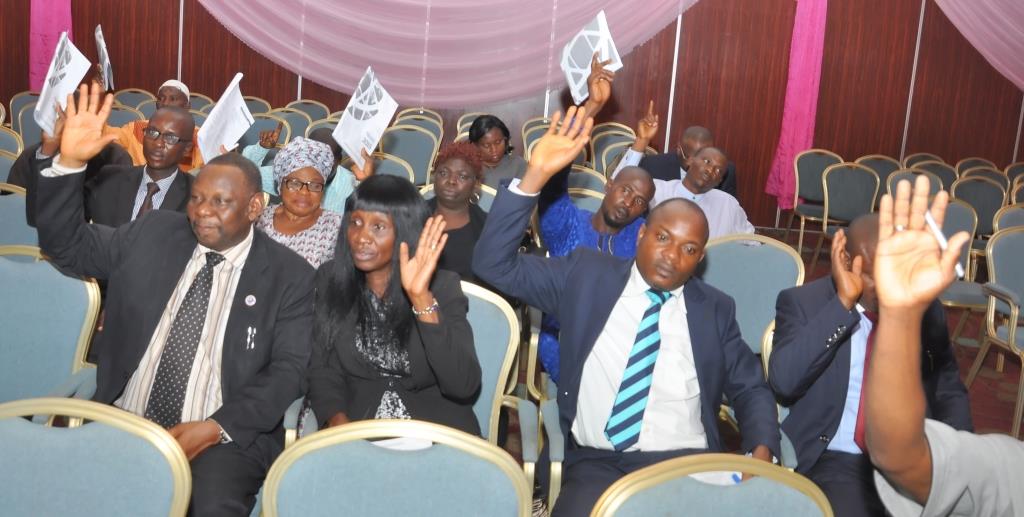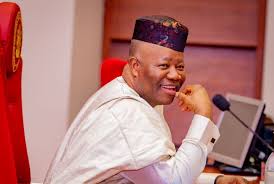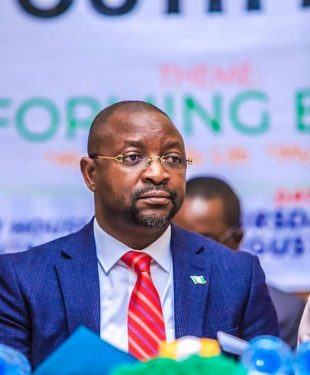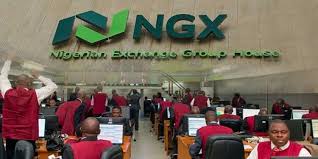Why 2018 holds great expectations for retail investors

As at the close of trade on the floor of the Nigerian Stock Exchange (NSE) for the year ended December 31st, 2017, all but one performing indices of the exchange closed positive year to date (ytd), pointing to expectations of 2018 year.
Greater challenges however confront retail investors most of which hinge on long- term investment nature of indigenous investors who rarely take profit on price growth, yet the revival of the primary end of the market becomes their concern for 2018.
The concern of a cross- section of retail investors who spoke to Daily Times on the need to revive the primary end of the market could be hinged on the poor performance of the NSE ASeM market segment which prides itself as the only sector that recorded negative returns for the year ended 3 December , 2017.
The NSE ASeM index closed year at -8.60 per cent returns on investment, the only segment that closed negative, indicating that the market low hanging fruits, MSMEs and emerging companies may have been abandoned for the bigger kill in the fixed income space.
However, the growth posted by the NSE in 2017 showed that NSE’s ASI, which reflects the market strength or weakness for the year gained 42.30 per cent ytd. The NSE’s banking index gave the highest returns in the year with 73.32 per cent ytd, followed by NSE Pension index with 70.33 per cent, while NSE premium index gained 51.23 per cent ytd.
The main board returned 42.36 per cent, NSE 30 Index 46.14 per cent, NSE Insurance Index 10.36 per cent, NSE Oil/Gas Index 5.76 per cent, NSE Consumer Goods Index 36.97 per cent, NSE Lotus II 2 recorded 39.03 per cent ytd, while NSE Industrial Goods Index rewarded investors with 23.84 per cent ytd.
The strength of the Nigerian market in positive returns on investment in 2017 was re-echoed recently by the CNN when it reported that Nigerian market emerged as one of the exchanges with the highest returns on investment. Although it also noted that the equities pricing ranked among the lowest in the world.
The report pointed that probability are that the country’s stocks would continue the growth trajectory as the stocks are rated as one of the world’s cheapest.
The report noted that the NSE’s ASI suffered mightily in 2015 and 2016 occasioned by low oil prices, militant attacks, currency troubles, elections and Ebola hit investor sentiment.
CEO, Nigerian Stock Exchange (NSE) Oscar Onyema reiterated the commitment of the market to ensure transparency and ethical practices and sustain the tempo in returns on investments when he assured that Exchange would continue to enhance its investor education policies to further empower investors on their rights and how to invest wisely.
Speaking at the 2017 NSE Essay competition wards recently in Lagos, Onyema stressed that investor education remains the major driver of market growth and wealth creation for existing and new investors in the market.
Shehu Mikhail, Constance shareholders of Nigeria told Daily Times in an interview that revival of the primary market is largely hinged on government approach to policies that would restore investors’
According to him, retail investors’ confidence can only be restored if there are better policies by the government which will not be able to create a loophole for companies to constantly defraud investors
Some companies he said had in the past defrauded shareholders by approaching a market with a phony business that likely to erode the money an interested investor could have, “more importantly our regulators need to initiate an approach to give confidence in IPO market.”
However, investment expert, Matthew Ogagavworia, told Daily Times Nigeria that growth in the primary segment of the market would be powered by growth in the economy and strengthened by fiscal policy.
According to him, “the operating environment continues to be affected by the oil price shock, slow Gross Domestic Product(GDP) growth, continuing pressure on the naira, scarcity of hard currency in the FX interbank market and policy uncertainty.
“It is a wrong signal for the Nigerian economy. It will hurt foreign direct investment and also foreign portfolio investments”.
He said that when investor are wary that the economy cannot support new businesses as credit worthiness of some of the otherwise big banks, investments will be constrained, new jobs will also slow down, incomes may also suffer and hence a slowdown in economic recovery with a delayed recovery cycles.
Meanwhile, as the Nigerian capital and money markets enter another phase in 2018, key issues are expected to shape economy via the market fronts.
While politics, crude oil price, volatility in Nigeria Delta, attacks by terrorist Boko Haram , Fulani Herdsmen attack and build up to 2019 presidential elections are key developments that would have developmental or destructive impacts on the market and the company at large, global issues would to a large extent impact the country.
On some of the new measures expected to lift investor confidence, he said that advocated easy and seamless processing of investment documents including the e-dividend, Direct Cash Settlement (DCS) among others,
He also called for regular reviews of investment laws and compliance level as well as ensuring that stockbroking firm maintains separate account from client account to avid sweeping of sales proceed when they settle from stockbroker account. He further called for stricter enforcement and more regulatory inspection of stockbroking firms.
Findings shows that while Forex availability and pricing would impact market, exchange rate regime, Federal Government bonds and monetary policy rates expected to ease this year , according to SBM report, will enhance availability of funds, increase productivity, earnings by firms and economy.
The Nigerian Stock Exchange Chief Executive Officer, Mr. Oscar Onyema has scheduled to address the capital market community on January 15th 2018, it is expected that he would dwell more on the high rate of return on investment year to date recorded by the NSE in 2017, but more would be expected from him by the investing public.
Onyema and the out gone council president of the Nigerian Stock Exchange (NSE) Aigboje Aig-Imoukhuede assured Nigerians, aT the last NSE AGM, that demutualization process has attained 80 per cent completion, and that the remaining 20 per cent would be actualized by in the outgone year.
The NSE CEO would have the opportunity to explain the delay in the process and possibly give a fresh expected time for completion of the demutualization, otherwise, key stakeholders would assume that the process may not be actualized soon.
Unethical practice is also expected to be one of the major that may make or mar the Nigerian market in 2018, hence the NSE CEO would be expected to give insight into the reported cases of market infraction by key players and the level of prosecution.
Lowering the per value pricing of equities, which is being touted to be high at 50 kobo has further beEn challenged by recent ranking of the Nigerian stocks as one of the cheapest in the world, while the economic activity and increased level of production reflects positively on the value of the Naira, further reducing removing seal on 50 kobo per value price of equities, would further water down the value of the nation’s market.
IPO market revival has remained a challenge to both the NSE and the Securities and Exchange Commission (SEC), a focused way of reviving the primary market for companies to be able to raise funds from the market would be expected from the NSE CEO.
Would the NSE in 2018 do the talk of introducing derivatives to the Nigerian market? This however depends on the availability infrastructures to drive derivatives introduction, if the infrastructures are not yet in place, it is expected that Onyema will once again make the promise to introduce derivatives to the Nigerian market.
Conditions to support delisting may occur this year and understanding this, the NSE CEO would assuage that the market is not positioned to support lagers not committed to complying with post listing rules as they would be shown the way out of the market.
Local investors’ confidence has remained the scourge of the Nigerian market and would be one of the major driving forces to engender sustainable market growth this year. The NSE and the SEC therefore need to, in addition to the –e-dividend registration, Direct Cash Settlement (DCS) and other market measure, reveal a novel measure that would attract more indigenous investors to the Nigerian market.
In deed, Nigerians and the world look up to the NSE CEO, as he addresses the lingering issues in the already publicized world review of 2017 market operations and preview of 2018 scheduled for 15th January, 2018.










